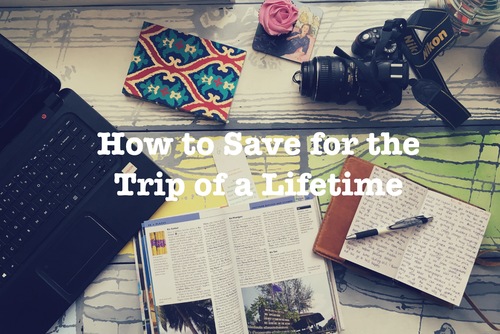Well, as humans, the answer is obvious: we enjoy taking risks. Naturally, for someone of us, the word risk has different connotations and our tolerance levels will be different.
However, the way our brains are wired suggests that we're programmed to enjoy a certain amount of uncertainty.
In fact, if you look at some aspects of the psychology of risking taking, you'll see that our desire to pursue the unknown is fuelled by the chemical dopamine. This neurotransmitter essentially gives us that natural high we experience after partaking in a risky activity.
Now, what does all this have to do with your gap year we hear you cry? Well, according to the stats, young adults (up to the age of 25) take more risks than any other age group.
In this instance, we can assume that jetting off to an unfamiliar country with very little local knowledge or money is a risk. In fact, one of the biggest risks of travelling is running out of money when you're miles away from home. However, despite this potential risk, millions of young adults take gap years or volunteer abroad every year.
Are all those people just gluttons for punishment? Probably not. What we're really seeing here is that the risk to reward ratio (lack of money vs. helping someone) is one that that triggers that natural high we all crave.
However, as we've said, risk is always relative and if the stakes are too high, then it can actually have an adverse effect on your emotions. Essentially, you need to find the right balance and this means finding ways to have at least some money.
Indeed, the more money you have saved, the smaller the "risk" is. With this in mind, we’ve come up with three ways you can save money up before you go away to travel.
1. Work Hard
The best way to save up money for your gap year is, of course, to work a lot while you can. As your gap year approaches you’re going to have to take working to a whole new level, primarily by taking on more hours.
By working more hours and shifts you will be earning money that could really make a difference and you won’t have as much time or temptation to spend the money you’ve saved so far. If this isn’t an option for you, you may need to get a second job or freelance.
Whether you’re mowing your neighbours' lawns or covering a shift at the local café, each and every hour you work will make your gap year so much easier. Just buckle down for now and look forward to that amazing experience.
2. Budget
Once you have your work routine somewhat sorted, you’ll be able to come up with a realistic budget for the coming months. Begin by listing necessary expenses such as bills, food and rent at first, to make sure you have the basics covered.
Unfortunately, once this is done you’re going to have to be quite brutal when it comes to entertainment and luxury spending if you’re going to save money. It's not all bad though, as while you may not be able to go on a big night out any time soon there are plenty of other cheap entertainment options.
From a game of poker at home to a Bring Your Own Everything party where any food and drink is welcome, there are plenty of ways to socialise and home some fun without breaking the bank.
3. Eat Smarter
When it comes to budgeting, the only massive variant you could be faced with is how much you spend on food.
This is because you may fancy different meals depending on the day and a lot of social occasions revolve around eating. Fortunately, there are ways you can save money and continue to eat the foods you love.
Firstly, try to cook at home as much as possible instead of ordering out or going to a restaurant, as just one meal out is probably about as expensive as three days' worth of home-cooked grub. When you go grocery shopping, take a look at the sell-by dates and plan accordingly, so you don’t waste anything, and if you can try to buy food that is on offer.
You may even want to consider signing up to websites that share deals and coupons, or get a store card where you receive points you can use in the future.
4. Other Recommendations
- Move back home
- Cut down on unncessary things
- Reduce outgoings
- Get a job on your gap year
Sure, sticking to this advice may be difficult in the beginning but if you stick to it and remember your motivation these changes will soon become habitual. Let us know if you have any other tips you’d like to share to help others.
Search opportunities by destination:







